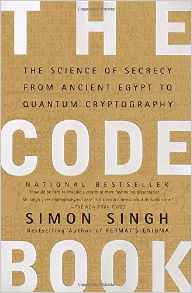As a fun followup to my previous post, I thought I'd illustrate the same point using this very cool Creative Commons comic. After reading the comic, you should have a clearer idea of what the CC licenses are all about, right? In addition, I like the spectrum perspective shown in the opening and closing panels, as well as the 2nd-to-last panel explaining "Public Domain."
So here are the (rough) analogies I draw:
Copyright => Copyright EULA's
CC:Share-Alike => GPL, EUPL, etc.
Public Domain => LGPL, etc.
As I see it (and maybe Creative Commons sees it...?), Public Domain, and not GPL, is the extreme opposite of Copyright. With that in mind, my order of preference is from most-free to least-free:
1. Public Domain, LGPL, etc.
2. GPL, EUPL, etc.
3. Copyright, Windows Vista License, etc.
Addition:
I also just read a descriptive scenario whereby new CCPLv3-SA licenses are incapable of ENFORCING their copyleft doctrine down the chain of recipients.
See, if I was Sam, I would just put work A into public domain and stop worrying about it. And if first recipient, Dave, wraps it in TPM, creating d[A], then that's Dave's work now. 2nd-recipient Bob may like d[A] more, but it's up to Dave to give him permission to modify d[A]. Bob can always come get A from me with no strings attached.







Poor George Romero. You might not know that he made his horror classic "Night of the Living Dead" back when you had to attach a notice to get copyright protection. He released a print without it, so his film "accidentally" fell into the public domain, and as a result the poor guy was only able to make 17 more films so far.
I don't follow why you want to know the "opposite of copyright", but like so many things it depends on the aspect you're analyzing.
As a license (specifically one that states "all rights reserved") the opposite probably is "no rights reserved", i.e. the publicdomain.
As a means of promoting "science and the useful arts" -- specifically, by forbidding the sharing and copying of information, the opposite would be copyleft, which aims to promote science and the useful arts by *requiring sharing & copying.
As a type of property, which one naturally "owns" by virtue of having dreamed up the idea or pounded out the melody, well there really isn't an opposite.
Here's a fun one: as a metaphor by which ideas are treated like tangible property, the opposite of copyright is a metaphor under which tangible property is treated like ideas. There's actually a term for this:
http://en.wikipedia.org/wiki/Subjective_idealism